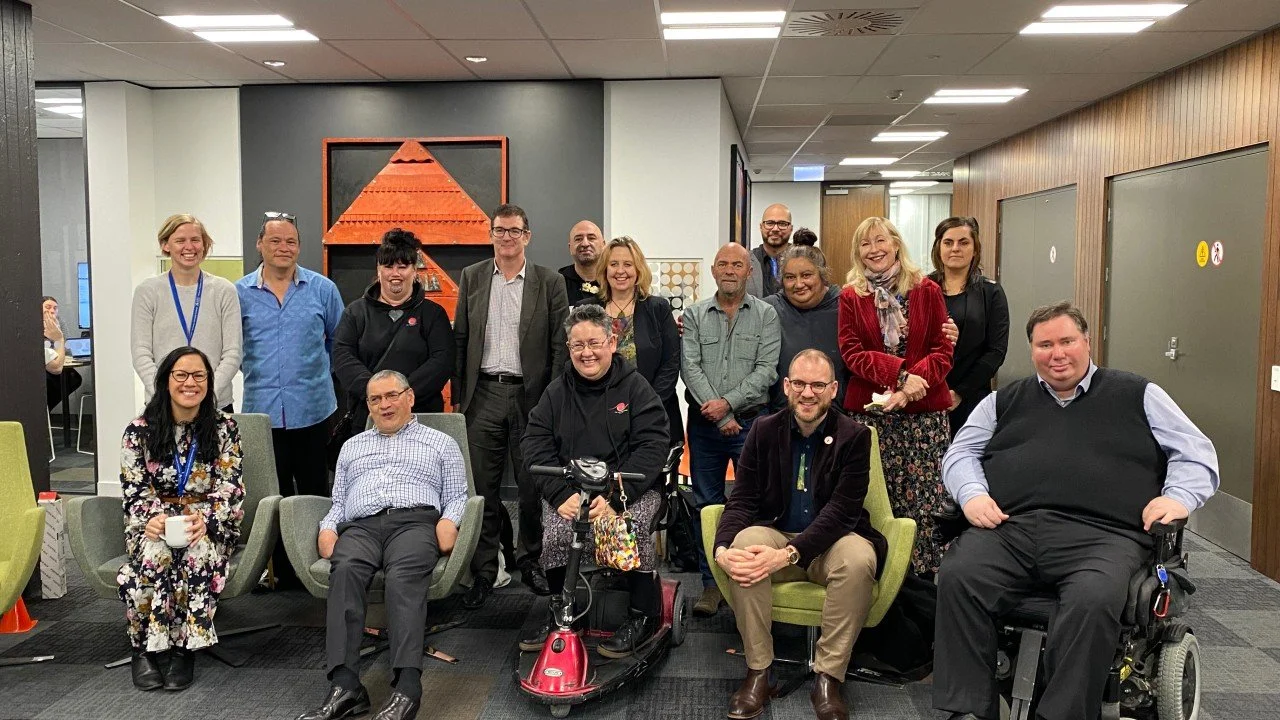Why Disability: From Surviving to Leading Change
Why Disability?
People often ask me: Why have you dedicated so much of your life to disability advocacy and system transformation?
The answer is both personal and professional. I am Tangata Whaikaha Māori | Disabled indigenous New Zealander. I acquired disability as a child, after being hit by a car at age 10 and sustaining traumatic physical injuries to my brain, back, leg and internal organs. I lived in a hospital for two years and have been a “frequent flyer” of health and disability systems ever since.
More recently, I’ve had to navigate the reality of invisible disabilities, and this year I also became a wheelchair user. Each stage of my life has been marked by disability in some form, shaping how I see the world, how I parent, and why I fight for a fairer system.
“Disability is not just my lived experience. It is my why, the reason I fight for dignity, inclusion, and equity every single day.”
The Weight of Acquiring Disability
Acquiring disability is a life-altering moment. At 10, I lost the certainty of a “typical” childhood. I had to relearn how to learn, how to live with fatigue and memory challenges, and how to build a life in a society that too often overlooks disabled people.
Invisible disabilities came with their own struggles, the judgement of others who couldn’t “see” my impairment, the assumptions that I was lazy or unreliable, the internalised shame that came from being misunderstood.
Now, becoming a wheelchair user has added another layer. The world looks different from seated height. Accessibility is no longer an abstract issue, it’s a daily frustration. Parenting while disabled is also an immense challenge. Raising Hiwa-i-te-Rangi as he grows, running alongside him metaphorically if not physically, means constantly negotiating energy, mobility, and guilt. Yet it is also full of pride, he is growing up knowing disability is part of life, not something to be hidden or feared.
A Career Shaped by Disability Advocacy
My career has always circled back to disability.
Enabling Good Lives (EGL): I began as a community advocate, bringing a Tangata Whaikaha Māori perspective to the Waitaha Leadership Group. That role taught me the power of kaupapa Māori in reimagining support systems.
Regional Director, EGL Waitaha: My first secondment into the Ministry of Health was to lead EGL’s implementation regionally. It gave me a taste of how systems can transform when whānau are trusted to lead their own lives.
Principal Advisor, Ministry of Health: I supported national transformation of Disability Support Services, embedding EGL principles into wider policy.
COVID-19 Disability Response: When the pandemic struck, I pivoted to lead disability-specific workstreams. I am proud of what we achieved, from safeguarding disabled lives in the response to ensuring equitable access in the vaccination rollout.
Whaikaha | Ministry of Disabled People: As Principal Advisor, I helped stand up Aotearoa’s first ministry dedicated to disabled people.
Health New Zealand | Te Whatu Ora: Now, as National Manager of Disabled People’s Health in Hospitals & Specialist Services, I am embedding equity into health commissioning, capability, and outcomes across the motu.
Through these roles, I’ve also been part of every major emergency health response since the Christchurch Earthquakes, ensuring disability inclusion in the hardest of times.
Why Disability Advocacy Must Go Further
Disability never exists in isolation. My life has taught me that.
I am Māori, Pacific, bisexual, takatāpui | rainbow, disabled, rural, and now a parent. Each of these realities intersects, sometimes compounding disadvantage, sometimes building resilience.
Intersectionality is central to my why:
Disabled Māori should not be invisible in either Māori or disability spaces.
Disabled Rainbow people should not have to choose between advocacy groups that don’t see their full selves.
Disabled parents like me should not have to struggle alone against inaccessible systems.
This is why I fight for system change. Because until systems reflect intersectional lives, they will always fail those who need them most.
“Intersectionality in disability means designing systems that don’t just include us, they are built with us at the centre.”
Giving Back, Building Futures
Why disability? Because my survival depended on nurses, doctors, physios, mentors, and whānau who cared for me when I couldn’t care for myself. Because my present is shaped by navigating barriers daily as a disabled parent and professional. And because my future, and Hiwa’s future, depends on building a system that will not erase or fail disabled people.
I am certain of this: if it weren’t for the health system, and the people inside it who fought for me to live, I wouldn’t be here. My mahi is about giving back to that system, reshaping it so that others don’t have to carry the same trauma, the same barriers, the same shame.
Why disability? Because it is my story, my community, and my responsibility.
“We don’t just fight for ourselves. We fight for futures where disability is dignity, equity, and strength.”
🔗 Follow me for more reflections on systems change, equity leadership, and human rights diplomacy.
🖤 Ko te pae tawhiti whāia kia tata. Ko te pae tata whakamaua kia tīna. | Seek out the distant horizons so they may become close. Hold fast to the close horizons so they may be secured.


